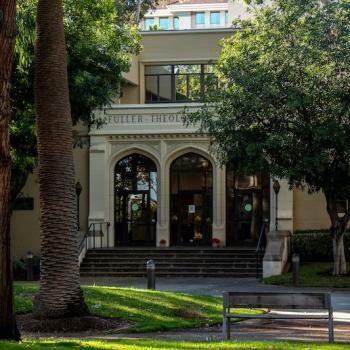
When Rockstar Games tease their latest Grand Theft Auto title, you know a debate is just around the corner. With a new trailer viewed, as I write, over 162 million times on YouTube, hype has begun to grow for the release of GTA 6. And so, my friends, it’s time to discuss violence in video games once more!
Cards on the table, I’ve never sampled the lovely world of GTA; nor am I likely to. Quite simply, the property doesn’t appeal to me. Casual gamer that I am, it’s Nintendo for me! So, kind reader, if none of this has disqualified me from the conversation at hand, then allow me to proceed…
Why, first of all, given that I don’t play GTA, have I chosen to write an article on the series? It was a favourite YouTuber of mine, Alex O’Connor, a commentator on ethical issues of an atheist perspective, who brought it under my notice. Beforehand, I had been oblivious to GTA 6.
In a video that Alex released in the final hours of 2023, “The Ethics of Grand Theft Auto,” he neither condemns nor justifies the violence in GTA. Rather, Alex posits that people form judgements on the games based on their emotional response to screen-based violence. (Anyone who has read Jonathan Haidt’s 2012 book, The Righteous Mind, will recognise this viewpoint.)
Back when I was in high school, for example, I remember an occasion when my Religious Education teacher lambasted the games for their explicit inclusion of prostitution. She was rightly disgusted that, as if there weren’t enough sexual exploitation in this twisted world – against women, in particular – the so-called entertainment of our leisure hours depicts it as well.
Is there a place for violence of any kind in entertainment? I think the sensible answer is, ‘Yes.’ But under what conditions? Destructive forces can serve a narrative purpose, for one thing, as opposed to pure gratuity. Protagonists in great stories often face terrible infringements of their person – as, of course, did our Lord. One fictional character who springs to mind is Theon Greyjoy from Game of Thrones. Theon is a good example because his torture and eventual castration is part of a redemption arc, which arguably saves him from an even deadlier path.
On the other side of the ledger, we have goofy, tongue-in-cheek violence in the tradition of that now-classic rail safety jingle, “Dumb Ways to Die.” Nobody, save the most paranoid of parents, could find any moral nits to pick here. The Elder Scrolls V: Skyrim, a favourite game of mine, contains violence which is frequently hilarious. ‘Introducing your face to a spear trap,’ anyone?
Another factor is the genre. Skyrim is a fantasy game, whose universe differs greatly from our own. It’s populated by creatures that don’t exist in the real world, and so the violence these mythical beasts inflict – we’re talking about giants, trolls, werewolves, etc. – will never be visited upon actual people; neither will certain violent acts, like hostile spells, perpetrated by the player. By contrast, GTA presents realistic urban settings, where the weapons are true to life.
It's time I brought some theology to bear on all this. Free will, as in the Garden of Eden, is the first idea that I’d like to discuss. There are those believe that as long as one doesn’t – oh, I don’t know – murder a prostitute in cold blood – the forbidden fruit of sin, if you will – then one is free to commit motor vehicle theft in an otherwise ethical fashion. This is fair enough, on first inspection, but it’s not without issue.
While you might have total control over your own actions in the game, you cannot control what other players may choose to do. Now, to purchase a game is to lend your financial support, and perhaps even your approval, to the work of a game studio. This keeps them in business and enables future titles to find an audience. Again, other customers may choose a significantly more depraved approach, even if you decide to shun questionable deeds yourself.
Another factor is the sacredness of life. As Christians, we believe that a stamp of divinity rests within each of us. We’re pro-life in the broadest possible sense – not in a trite, political way. This is a commitment we share with people of all faiths. Of course, I’m aware that no prostitutes were actually harmed in the production of any GTA game. That isn’t exactly the point, however.
In a 2008 interview with Sarah Fay from The Paris Review, the novelist Marilynne Robinson said, ‘I don’t believe in exploiting or treating with disrespect even an imagined person,’ such is the writer’s reverence towards the divine image as revealed in humanity. Granted, she did follow this up with, ‘I realize that I can’t universalize my standards’; there’s always a get-out clause!
Nevertheless, if your deepest conviction about humankind is that, in the words of St Paul, we belong to the one body (1 Corinthians 12), then it becomes harder to take pleasure in violence even when the said violence is pretend, and the victim is made up of tiny pixels on a screen. To harm another person is, if we follow Paul’s metaphor all the way, to harm ourselves as well.
Ultimately, GTA 6 will be released in 2025, regardless of anyone’s opinion – yours, mine or anybody’s. This doesn’t mean, how and ever, that pieces like this one are in vain; online speculation around what Rockstar will include in the final game, and whether this generates praise or backlash, might sway the company’s creative decisions – for the better, hopefully.
To sum up my thoughts on violence in video games, I have to concur with Alex O’Connor. Whether or not you choose to play GTA 6 in 2025, and what you do within the game if you do, will be down to your conscience. Have fun with it but do try to sweep the moral minefield with Robinson’s maxim: ‘I don’t believe in exploiting or treating with disrespect even an imagined person.’
1/15/2024 7:14:11 AM





